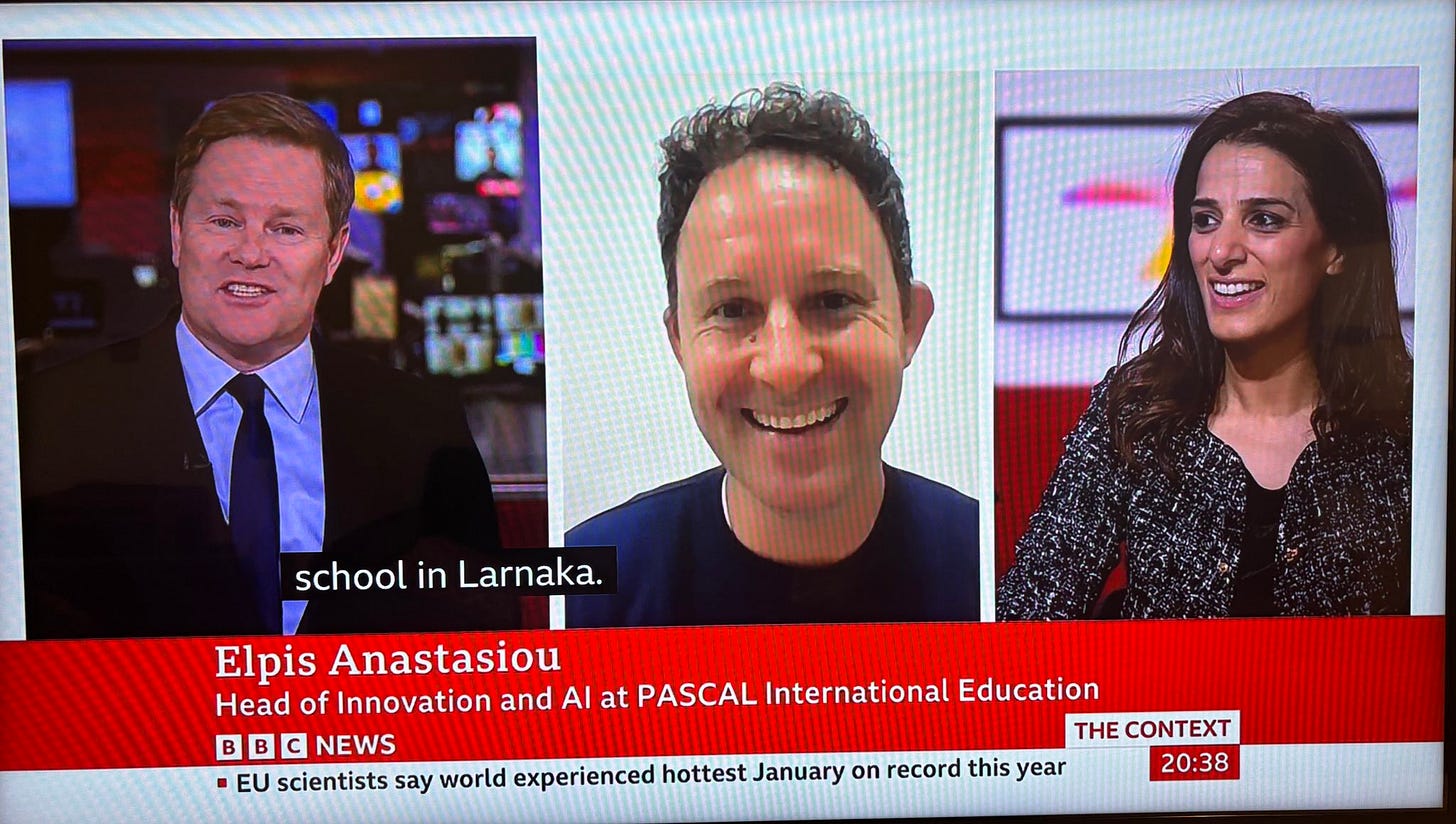Welcome back to the Interesting Reads Weekly Roundup!
This week, we highlight the launch of Grok 3, a new AI model from xAI, plus a review comparing it to competitors. We also cover an AI breakthrough solving a superbug problem in just two days and Meta’s plans for humanoid robots to tackle household tasks.
Additionally, we look at a study on interleaving in learning, an AI education initiative from Globeducate, and Anthropic’s new index exploring AI’s impact on the labour market.
Check them out below 👇
Elon Musk’s xAI releases its latest flagship model, Grok 3, by Kyle Wiggers at TechCruch
This article explores xAI’s launch of Grok 3, its latest AI model, developed with 200,000 GPUs and ten times the computing power of Grok 2. Musk describes it as a “maximally truth-seeking AI”, trained on an expanded dataset, including court filings. The article discusses Grok 3 mini, a faster but less accurate variant, and DeepSearch, a tool that scans the web and X for summaries. Benchmarks suggest Grok 3 outperforms GPT-4o in mathematics and science. Early access is available via X Premium+, with a SuperGrok plan expected soon. Musk aims for political neutrality, though its success remains unclear.
Grok-3 Review: How Elon Musk’s AI Compares to ChatGPT, Claude, DeepSeek and Gemini, by Jose Antonio Lanz for Emerge
This article explores Grok-3’s debut, positioning it as a major contender in the AI race. xAI claims Grok-3 surpasses rivals, boasting record-breaking 1,400+ ELO in LLM Arena. Tests reveal it outshines Claude 3.5 in creative writing, offers stronger coding skills, and maintains fewer political biases than competitors. However, math reasoning lags behind OpenAI and DeepSeek, and its document handling is limited. Its uncensored approach makes it more responsive, yet it carefully navigates sensitive topics. With faster research capabilities and a cost-effective X Premium+ option, Grok-3 is a strong alternative—but the best AI depends on your needs.
AI cracks superbug problem in two days that took scientists years, Tom Gerken for BBC News
A Google AI tool solved in two days a complex problem that took Professor José R. Penadés and his team at Imperial College London a decade to unravel. The researchers had been investigating how antibiotic-resistant superbugs spread between species. Given a brief prompt, the AI independently reached the same unpublished conclusion and suggested four additional hypotheses, one of which the team is now exploring. Shocked by the breakthrough, Penadés believes AI will transform science by accelerating discoveries rather than replacing researchers. He described the experience as “spectacular,” likening it to playing in a Champions League match.
Meta is developing humanoid robots designed for household chores, Kishalaya Kundu for TechSpot
Meta is investing in AI-powered humanoid robots designed to perform household tasks. A new team within Meta's Reality Labs, led by Marc Whitten, former CEO of Cruise, will spearhead this initiative. Initially, the focus is on developing AI, sensors, and software to be utilised by various manufacturers, rather than releasing a Meta-branded robot. This strategy aligns with Meta's broader goals in AI and augmented reality, leveraging existing technologies to advance robotics. Additionally, Meta has hired John Koryl, former CEO of The RealReal, as vice president of retail to enhance sales of its AR devices.
Individual differences in fluid intelligence moderate the interleaving effect for perceptual category learning, Steven C. Pan, Liwen Yu, Yilin Hong, Marcus J. Wong, Ganeash Salvarajan, Michelle E. Kaku
The study examines how cognitive abilities influence interleaved learning. Higher fluid intelligence (reasoning ability) and episodic memory (recalling past experiences) enhanced learning of artistic styles through interleaving, while working memory (holding/manipulating information) showed mixed effects. No benefit was found for text-based learning. Findings suggest interleaving is especially effective for high-ability learners in visual and perceptual tasks, with implications for optimising study strategies based on cognitive strengths.
Pioneering Learning with AI Spotlighted by BBC News, from Globeducate
The BBC's AI Decoded, co-presented by Christian Fraser and CENTURY CEO Priya Lakhani, featured an interview with Globeducate’s Daniel Jones and Elpidoforos Anastasiou. The programme highlighted the HiAi! initiative, where students created AInstein Junior, an AI chatbot modelled after Christian Fraser. The project empowers students to explore AI responsibly, gaining vital skills for future innovation. It also promotes collaboration across Globeducate’s 65+ schools and includes projects like HiAi! Sustainable Cities, encouraging students to design smarter urban spaces.
The Anthropic Economic Index, from Anthropic
Anthropic has launched the Anthropic Economic Index to study AI's impact on labour markets, analysing millions of conversations with Claude. Their initial report reveals that AI usage is currently concentrated in software development and technical writing, with 36% of occupations using AI for at least a quarter of their tasks. The study found AI tends toward augmentation (57%) rather than automation (43%), and is most prevalent in mid-to-high wage occupations. Usage is lower in both lowest and highest-paid roles. The research focuses on occupational tasks rather than entire jobs, providing insight into how AI is being integrated into real-world work.
As always, we hope you enjoy these recommendations!
If you’d like to be notified when we post, subscribe for free using the button below, or connect with us on social media to let us know what you’d like to see next.



